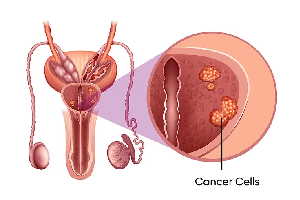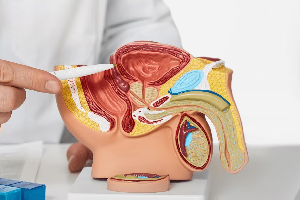
Prostate cancer is one of the most common cancers affecting men, particularly those over the age of 50.
This type of cancer develops in the prostate, a small gland located below the bladder and in front of the rectum, which produces seminal fluid. Understanding prostate cancer is crucial for early detection and effective treatment.

Prostate cancer occurs when cells in the prostate gland grow uncontrollably.
While many cases of prostate cancer grow slowly and may not cause significant harm, others can be aggressive and spread quickly to other parts of the body. Early detection is key to managing the disease effectively and improving outcomes.

Several factors can increase the risk of developing prostate cancer:

Early-stage prostate cancer often has no symptoms. As the disease progresses, symptoms may include:
It's important to note that these symptoms can also be caused by conditions other than prostate cancer, so consulting a healthcare provider for an accurate diagnosis is essential.

Living with prostate cancer involves managing treatment side effects, maintaining a healthy lifestyle, and attending regular follow-up appointments to monitor for recurrence.
Support from healthcare providers and family can be invaluable during this journey.